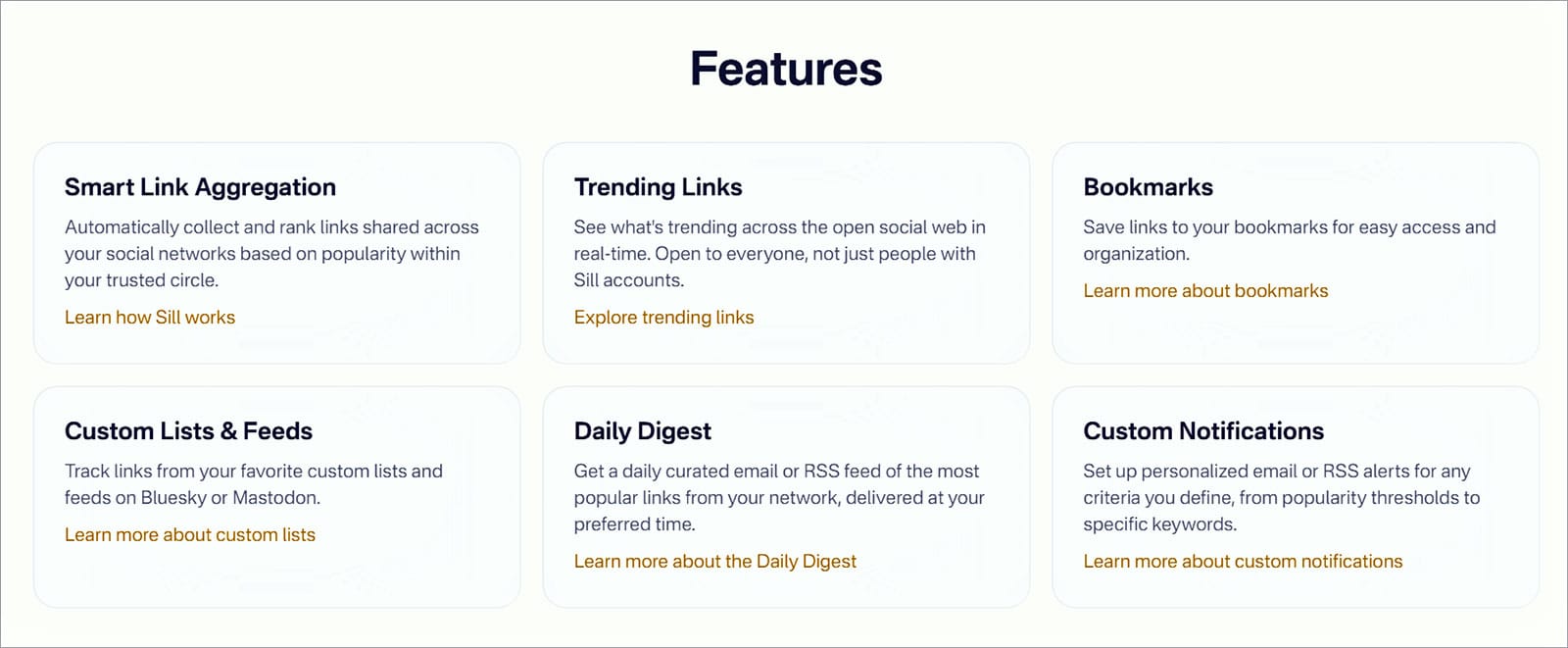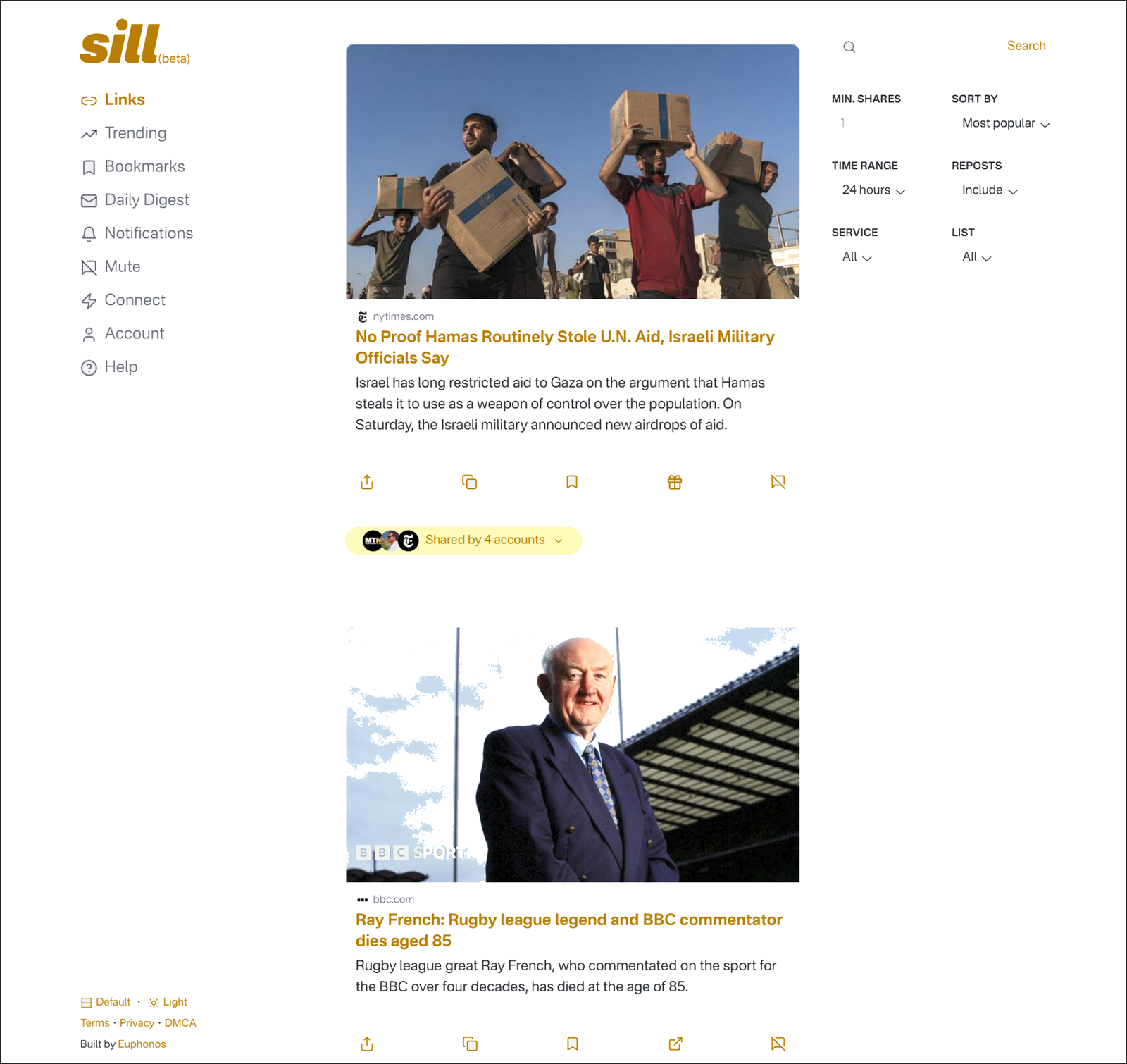For the past six months, I’ve been using a quiet little tool called Sill Social. It doesn’t demand attention. It doesn’t track engagement. It simply arrives in my inbox every morning, gently highlighting the most-shared links from my social feeds on Bluesky and Mastodon.
And that, I’ve found, is its strength.
In a world of algorithm-driven timelines and endless scrolls, Sill feels like a deliberate step in a different direction – toward a calmer, more intentional web.
What Is Sill Social?
At its core, Sill does one particular thing very well: it surfaces the links that people in your Bluesky and Mastodon networks are sharing most frequently. It collects them and delivers a daily email summarising what’s getting traction in your circles – not globally, but within the network of people you’ve chosen to follow.
There's no app, no website you first have to log in to, although there is one, so you can if you want to. A simple email, once a day, is primarily how I use Sill.
It’s reminiscent of what RSS readers or social bookmarking tools used to offer before the algorithmic age took over. In fact, it reminds me of the early days of blogging – when what people shared mattered more than how many people clicked.
Some people think Sill is just like Nuzzel was before Twitter acquired it and shut it down in 2021. NiemanLab has a very good review of Sill and its future, published last November.

Over the last few months, my daily email digest has consistently surfaced links to stories that are not only interesting but also relevant. They reflect the personalities and interests of my network – people I’ve deliberately chosen to follow.
Here are a few patterns I’ve noticed:
- Contextual depth: Articles from trusted sources like Platformer, BBC, The Verge, The Guardian, TechCrunch, New York Times, Wired, and lesser-known writers on Substack, Beehiiv, Ghost or personal blogs are shared on my networks regularly – often before they’re picked up more widely.
- Consistent themes: Topics like AI governance, social network shifts, decentralised tech, and digital rights dominate at the moment – which align closely with what I care about.
- Surprising discoveries: Some days, a link bubbles up that I might have missed entirely if not for Sill – something a handful of people shared but didn’t talk about directly. I also get a kick every time I see an episode of the For Immediate Release podcast showing up!
In short, it helps me catch the links from trusted sources on topics I'm interested in, shared by people I trust.
Why This Matters
As social platforms splinter and become noisier – or even more entrenched, more centralised – discovery becomes harder. Even on platforms like Mastodon or Bluesky, built on the promise of user control and independence, the challenge remains: how do you surface what’s worth your attention?
Sill doesn’t solve that completely, but it makes a meaningful contribution. It works because:
- It’s shaped by your network – not by engagement or ad metrics.
- It doesn’t assume what’s “important” – it simply shows what’s being shared most.
- It supports intentional engagement – you check your email, see what’s there, and engage or move on.
For someone working to rebalance work and life and reduce the digital noise, this kind of simplicity is welcome.
Sill Social is in beta and totally free for now - developer Tyler Fisher says some features, like alerts, will be charged for in the future. Although it's a beta, I find Sill highly usable and quite perfect in what it does.

There are a few things I’ve thought about that I'd like to see develop over time, especially:
- It’s link-focused, not conversation-focused – you don’t get the context behind why a link is popular.
- It reflects your own network’s choices – which means it can reinforce certain viewpoints or blind spots.
- Broader network support would enhance its value – support for other decentralised networks would move Sill closer to being a truly federated discovery tool.
This is more thinking-out-loud than suggesting changes or additions, although broader network support is something I really would like to see.
Still, if your goal is less algorithmic noise, not more, Sill Social will fit that bill today.
In its own subtle way, Sill helps restore a bit of signal in the network noise.
If you’re active on Bluesky or Mastodon and want a more intentional way to keep up with what matters to you, I’d recommend giving it a try: https://sill.social
Have you tried Sill or something like it? I’d love to hear what tools you're using to manage your digital signal-to-noise ratio.


















